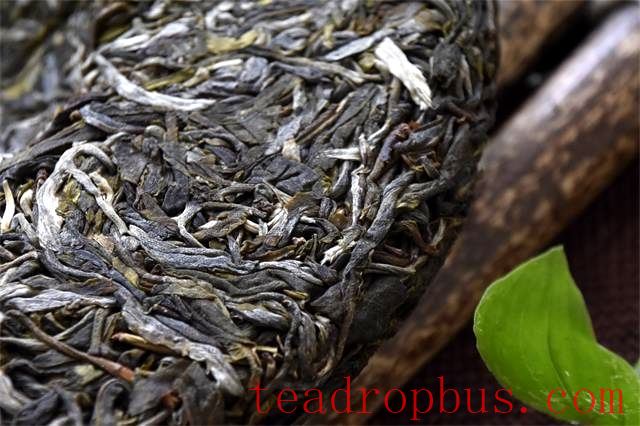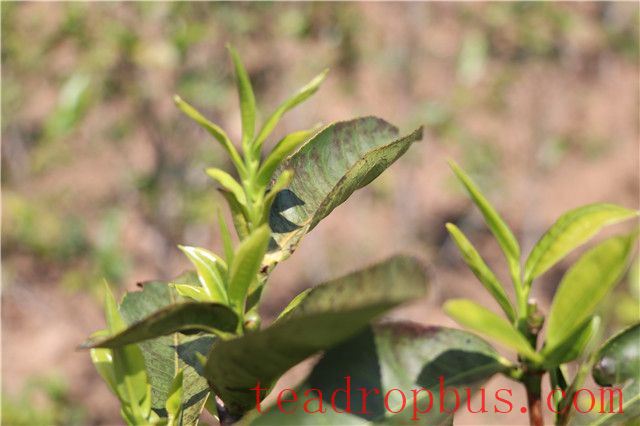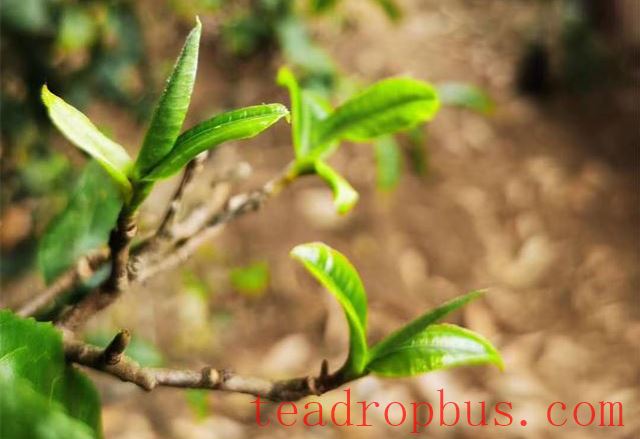In the Lincang production area, aside from Bingdao Tea with its prominent name-brand effect, there is also Xigui, a first-tier tea village known for its impressive taste and stable quality. In the past, this small village was often referred to as “Bangdong Xigui.” However, nowadays, many people consider Xigui tea to be distinct from Bangdong tea. This simple change highlights the extraordinary nature of Xigui.
This feature article will delve into Xigui, the place where the Great Snow Mountain looms overhead and the Lancang River flows beneath, capable of producing fine tea even at lower altitudes.

The Resources and Advantages of Xigui
Bangdong Township, located in the Linxiang District of Lincang City, is situated along the middle reaches of the Lancang River. The ancient tea gardens cover an area of about 5,000 mu, primarily concentrated in villages like Bangdong Village Committee and Mangang Village Committee, at elevations ranging from 800 to 1,300 meters, where the soil is rich and vegetation is lush. If you drive from Bangdong to Dazhaoshi Town without getting out of your vehicle, you can admire along the way a grove of cultivated ancient tea trees that are over 100 years old.
The highest point within Bangdong's territory, the Great Snow Mountain of Lincang, stands at 3,429 meters, while the lowest point, Xigui Village, is only 700 meters above sea level. This vast difference in elevation, nearly 2,700 meters, creates a unique landscape of high mountains and deep valleys, which gives rise to distinct characteristics among the tea trees growing in different altitude zones.
Divided by the semi-mountain road leading towards Dazhaoshi Town, the tea areas above the road feature many large, rounded rocks, cooler temperatures, and significant diurnal temperature variations. Tea villages here, such as Walnut Gorge, Daqing, and River Heart Village, are renowned for their fresh and refreshing taste. Below the road, the climate is humid and hot, with smaller diurnal temperature variations, and villages like Xigui, Nahan, and Weiping are known for their rich and mellow flavors.
Whenever Bangdong is mentioned, Xigui is always a topic of discussion. Xigui Village is part of Bangdong Administrative Village in the Linxiang District of Lincang City, Yunnan Province, approximately 12 kilometers away from the village committee. Since 2006, the reputation of Xigui tea has gradually increased, earning it the accolade of “Lincang's Banzhang,” and some have even proposed the saying “Banzhang is the king, Yiwu is the queen, and Xigui is the princess.” Although there is some debate around this, it underscores that Xigui tea ranks alongside Bingdao tea as part of the top tier in the Lincang tea region.
However, Xigui tea wasn't just famous recently. As early as the Song Dynasty, Xigui tea was the court tea of the Dali Kingdom. During the late Qing and early Republican periods, the “Myan Ning County Annals” mentions: “In Bangdong Township, Manlu and Xigu are particularly well-known. The aroma, color, and flavor of Manlu tea surpass those of other tea areas; unfortunately, the yield is limited and cannot meet the demands of outsiders.” Here, “Xigu” refers to Xigui, and “Manlu” is “Manglu.”
In the development of the tea industry in Bangdong, Xigui tea played a certain boosting role. Tea cultivation in Bangdong started during the Yongzheng period and flourished during the late Qing and early Republican periods. The “Myan Ning County Annals” records: “Since the first year of the Xuantong period (1909) of the Qing dynasty, by virtue of the magistrate Fang Xingdong, tea seeds were purchased and distributed to various villages for planting. At that time, hundreds of thousands of tea plants survived.” It can be seen that under the strong promotion of the Republic of China government, the area of tea gardens in Bangdong increased several times over, becoming the backbone of the current ancient tree tea in Bangdong.

Today, Xigui is divided into Old Xigui Village and New Xigui Village, home to more than 60 households, predominantly Han and Dai ethnic groups. The terrain of Old Xigui Village is lower, being only a few hundred meters from the Lancang River, posing a certain risk of flooding and a fragile ecological environment. For the safety of the people and to protect the ancient tea garden ecosystem, the local government funded the construction of a new village on the hillside of Xigui Mountain, away from the great river.
However, Old Xigui Village has not been abandoned. Due to its proximity to the ancient tea gardens, many primary processing facilities have been built in the old village. During the Spring Tea season, tea merchants and enthusiasts prefer to visit the old village, so many villagers also return to live there for a period.
The mountainous area of Manglu by the Lancang River, extending eastward from the Great Snow Mountain of Lincang, is the most concentrated location of ancient Xigui tea trees. Here, the mountain backs onto Xigui Mountain, faces the Lancang River to the east, and at its foot lies the historic Gali Ancient Ferry (now Guixi Ferry). Indeed, it is a place where “the Great Snow Mountain is above and the Lancang River is below.”
Xigui currently has 460 mu of tea fields, including about 300 mu of ancient tea gardens. The annual output is several dozen tons, with the majority of the ancient tea trees being the large-leaf variety native to Bangdong, tending towards a willow leaf shape. These trees are around two hundred years old and fortunately have not been pruned, nor have they been subject to excessive picking or human damage. They grow tall, and the ecological environment is excellent.
Fine Tea at Low Altitude
In previous feature articles, we often mention “high mountains and mist produce fine tea.” Interestingly, Xigui is known as “the only place in Yunnan where high latitude and low altitude produce fine tea.” This is mainly due to the unique climate and the cloud cover provided by the great river.
The ancient tea gardens of Manglu Mountain are located beside the Lancang River. In the morning, when temperatures are lower, fog shrouds the area near the great river. By midday, as temperatures rise, the rising warm air is obstructed by the high mountains and cannot dissipate easily, resulting in significant diurnal temperature variations, high humidity, and stable precipitation and temperatures throughout the year.
This unique “low-heat river valley climate” allows the ancient tea trees of Xigui to persistently receive the care of the clouds and fog, ensuring that the quality of Xigui tea remains stable over the years, rarely affected by extreme weather conditions such as droughts or heavy rains. Furthermore, the quality of both spring and autumn teas is relatively consistent. This natural nurturing is no less favorable than the perennially misty Banzhang tea region, which explains why Xigui tea could strongly emerge in the otherwise less renowned Bangdong tea region.

However, the proximity to the river also means that the soil in Xigui's tea gardens is somewhat deficient. The soil here is the typical brick-red soil found along the Lancang River, characterized by moderate pH values but low levels of total nitrogen, organic matter, and other nutrients. It is recommended that Xigui make full use of its advantage of abundant organic fertilizers in mountainous areas, broaden sources of fertilizer, improve soil quality, and extend the economic lifespan of tea gardens.
Among the distinctive mountain peaks, Xigui tea is also well-known for its distinctive character. From the perspective of the chemical composition of the tea leaves, its water-soluble extractives content is 45.64%, Caffeine content is 3.24%, and ester-type catechins content is 5.03%. Together, these bring about a rich and powerful taste, a potent tea essence, and a bold flavor.